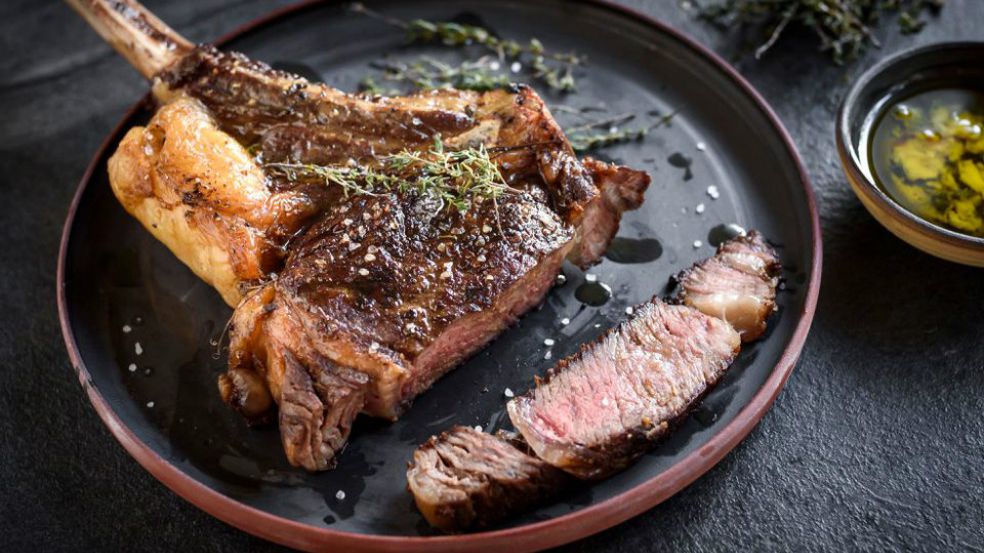For some time, the debate about product denominations has been the subject of a certain amount of ridicule and scorn.
Faced with the significant growth of the plant-based sector, member states are legislating, sometimes in a contradictory manner. Against this backdrop, Europe is totally within its rights in trying to bring clarity to what could become a confusing tangle of food denominations. If we accept today, “vegan burger” or “vegan sausage” what will deter companies over time to use “fruit” denominations in products that do not contain any?
Farmers along with decision-makers are being told that this issue isn’t important, and that the EU would shame itself by passing legislation for such an insignificant and seemingly meaningless subject. Such an approach is practical in that it avoids opening up the topic to a deeper debate. If the issue was so insignificant, then why invest so heavily in communication, advertising or coalitions of NGOs with food giants such as Unilever or Nestlé?
An opinion piece published in The Brussels Times last week has taken great care of our initiative directly but does not respond in substance to any of our arguments, preferring to refer to the whole debate with caricatured and binary opposition. Is this part of a communication strategy or is it an attempt to avoid answering the real questions that the debate raises? Whatever the case may be, we believe that the readers are entitled to hear both sides of the story.
Ms Kikou’s opinion piece refers to the ethics of vegan products. Our line, does not in any way question the values of vegan products or its consumption trends. We accept and recognise the choice of consumers to go for vegan products. However, it will be European farmers who will produce the proteins needed to make these alternatives (at least we hope so, since a massive importation of proteins from outside the EU is not to be excluded either...). Our criticism relates only to the part of these products that unfairly and deceptively uses the names and other elements of the “meat culture”. In our view, there are three clear and decisive reasons why European legislators should agree not to open a Pandora's box that will harm both farmers and consumers.
The first fundamental point is that there is no reason for two different products to have the same name. Let's take a simple example: If we ask you to tell us what's inside a steak, you will answer "animal protein". If we ask you what is inside a vegan steak, you probably won’t know as the list could be extensive.
So why use the same name? We think that one of the reasons is that the marketing experts behind those products know that "substitution" is a powerful concept that can convince consumers that they are simply replacing one product with another product that has similar attributes and nutritional value. However, any nutritionist will tell you that a vegan "steak" is not the same as a traditional "steak" from a nutritional point of view. This is where the confusion arises.
According to a French consumer perception survey, six out of ten people believe that plant-based drinks can replace milk in terms of nutrition, while one in two French people think that plant-based drinks provide the same nutrients as milk. Even more shocking is that the same survey found that one in three French people think there is actually milk in plant-based drinks.
Contrary to the words that Ms Kikou’s opinion piece put in our mouths, no one in our ranks has said that consumers do not know that they are buying vegan products when they buy a plant-based imitation. What we do say is that, in the confusion created by the misuse of meat denominations, the nutritional impact of this purchase is not well understood by consumers, and in some cases this lack of information can lead to disaster. We do not want to open the door to an Orwellian world where words no longer have any meaning, and where marketing is completely disconnected from the true nature and reality of the products.
Secondly, meat denominations are deeply-rooted in our cultural heritage. Bacon, ham, carpaccio, steak, fillet, chops and salami, are all traditional names that have been shaped over time by the hard work of farmers and butchers. These products differ greatly between regions, making them unique treasures that add to the cultural richness of our societies. Today, no one needs to explain what these products are or what to expect when buying them.
This is also the reason why these names have never needed protection until now. If we protect our local and regional heritage with geographical indications and designations of origin, we should be consistent and protect the more common names of goods that are also the result of our culinary heritage. As the marketing of similar products grows, this common heritage is at stake. The imitation industry has taken advantage of a European loophole to hijack these powerful common names in its favour.
Finally, why doesn’t the alternative sector, which claims to be so creative and innovative, not take advantage of this situation to propose new denominations that would allow it to break away from this meat culture? When the inventors of margarine launched their butter substitute product, they did not seek to copy butter, but differentiate themselves from it, and today the two denominations coexist and have found their audiences.
Rather than investing in lobbying activities, these companies need to look at new marketing concepts in order to gain consumer confidence and find a solution to the fundamental paradox of the sector.
For the European livestock sector, this is not a fight against vegan products. It is a call for the protection of the true nature of the products and consumer information, and for recognition and respect for the work of millions of farmers and people in the livestock sector in Europe.
Our position is not the one in which you want to comfortably lock us up. We are not the insensitive conservatives you present, you do not have a monopoly on progressive thought.
Pekka Pesonen
Secretary General of Copa, representing European farmers, and Cogeca, representing European agri-cooperatives


